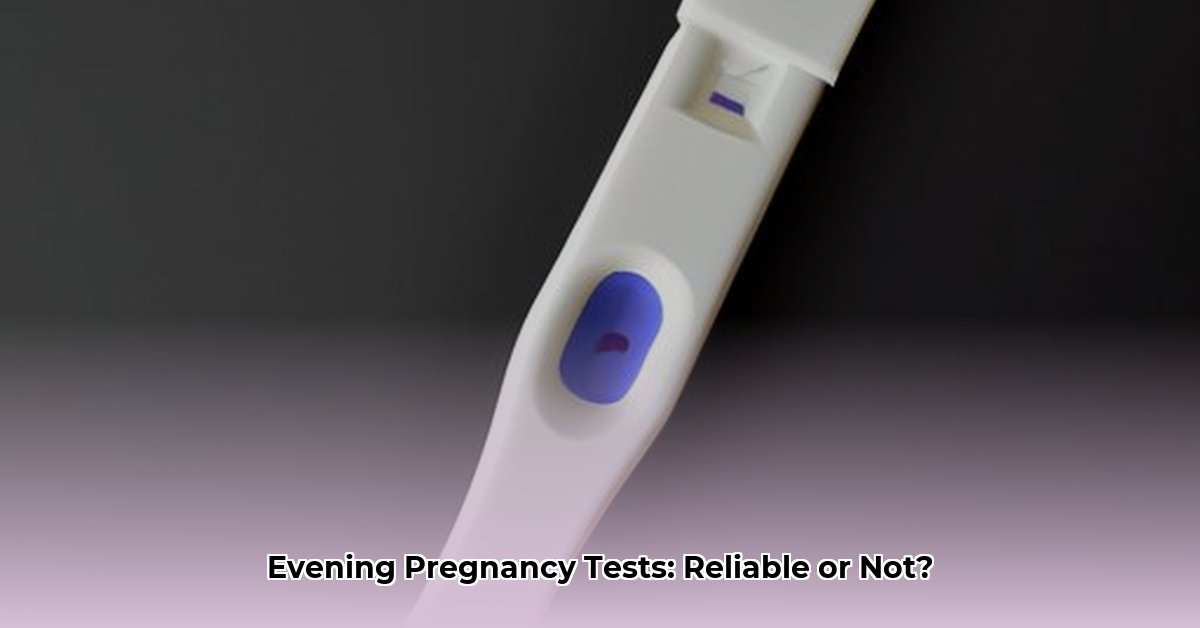Yes, you can take a pregnancy test in the evening, but morning urine is generally more accurate. This guide explains how to take a pregnancy test, understand evening results, and what steps to take next.
How Pregnancy Tests Work
Pregnancy tests detect the hormone human chorionic gonadotropin (hCG), produced after a fertilized egg implants in the uterus. HCG levels rise rapidly in early pregnancy.
Why Morning Urine Is Preferred
First-morning urine typically contains the highest concentration of hCG because it accumulates overnight. This makes it easier for tests to detect the hormone, especially in very early pregnancy.
Evening Tests: What to Expect
Evening urine is more diluted due to fluid intake throughout the day. This can sometimes lead to a false negative, especially in early pregnancy, meaning the test doesn’t detect hCG even if you are pregnant. However, a positive result in the evening strongly suggests pregnancy because enough hCG is present to be detected despite the dilution.
How to Take a Pregnancy Test
- Wash Your Hands: Ensure clean hands before handling the test.
- Unwrap Carefully: Remove the test from its packaging without touching the absorbent tip.
- Collect Urine: For midstream tests, urinate directly onto the absorbent tip for the specified time. For other tests, collect urine in a clean, dry cup and dip the test strip according to the instructions.
- Wait: This is the hardest part! Wait the recommended time (usually a few minutes). A timer can help.
- Read the Results: Most tests use lines. Two lines generally mean positive, even if one is faint. One line usually indicates negative. Digital tests display “pregnant” or “not pregnant.” Always refer to the instructions included with your specific test.
Understanding Evening Test Results
Think of hCG like a rising tide. Early in pregnancy, the hCG “tide” is higher in the morning. As the day progresses and you drink fluids, the “tide” appears lower, making it harder for some tests to detect.
A negative evening test isn’t conclusive, especially before a missed period. Retest with first-morning urine in a few days. A positive evening result is promising and likely accurate, but confirmation with a morning test or by a doctor is recommended.
FAQ: Your Pregnancy Test Questions
| Question | Answer |
|---|---|
| Can I take a pregnancy test at night? | Yes, but morning urine is generally recommended for higher accuracy. |
| Are evening tests reliable? | They can be reliable, but false negatives are more likely early on. |
| What if the line is faint? | It likely suggests pregnancy, but retest with first-morning urine. |
| My evening test is negative, but my period is late. What should I do? | Retest in a few days with first-morning urine. If still negative, consult your doctor. |
What to Do Next
Positive Result:
Congratulations! Schedule an appointment with your doctor or midwife to confirm the pregnancy and discuss prenatal care.
Negative Result:
If your period is late, retest with first-morning urine in a few days. If you still get a negative result and are concerned, consult your doctor.
Unclear Result (e.g., faint line):
Retest with first-morning urine. If the result remains unclear, your doctor can provide a more sensitive blood test for a definitive answer.
Related Resources
- American College of Obstetricians and Gynecologists (ACOG)
- March of Dimes
- Planned Parenthood
Disclaimer: This information is for educational purposes only and is not a substitute for professional medical advice. Always consult with a healthcare provider for any health concerns or before making any decisions related to your health or treatment.
- Wellness Fair Ideas for Work to Boost Employee Wellbeing - December 15, 2025
- Affordable Employee Wellness Fair Ideas for Any Budget - December 14, 2025
- Employee Wellness Programs Strategically Benefit Employee Health And Retention - December 13, 2025
















